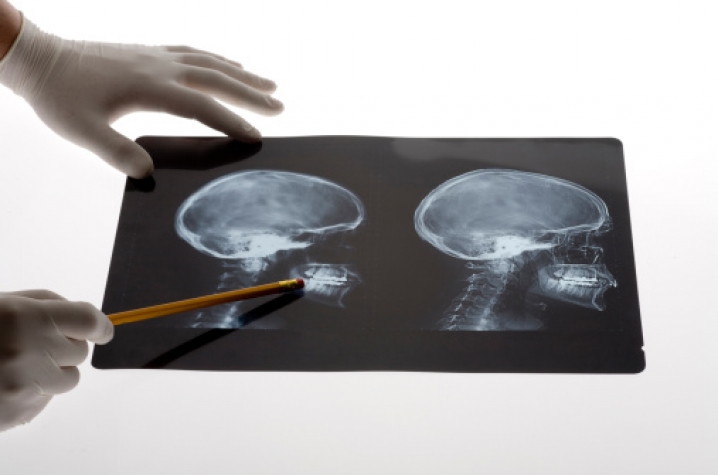UK is First in U.S. to Conduct Trial of Promising New Treatment Strategy for Parkinson's Disease

LEXINGTON, Ky. (Nov. 18, 2013) -- University of Kentucky physicians will discuss today at 10 a.m., 317 Charles T Wethington Jr. Building, the clinical trial of a new treatment strategy for Parkinson’s disease that, if successful, could drastically change future treatment of the disease and possibly halt or reverse brain degeneration. UK is the first in the U.S. to conduct the clinical trial. A patient with Parkinson’s disease will also be present to tell his story.
###
Media Contact: Mallory Powell, mallory.powell @uky.edu
WHO: UK President Dr. Eli Capilouto; Dr. Craig van Horne, UK associate professor of neurosurgery and principle investigator of the clinical trial; Dr. Greg A. Gerhardt, UK professor of anatomy & neurobiology and director of the Morris K. Udall Parkinson's Disease Research Center of Excellence; and Rodney Parsons, UK HealthCare patient from Lexington with Parkinson’s disease.
WHEN: 10 a.m., Monday, Nov. 18, 2013
WHERE: 317 Conference Room in the Charles T. Wethington Jr. Building
PARKING INFORMATION: Parking is available in the Kentucky Clinic Parking Garage located on Huguelet Drive. The Wethington Building can be accessed by walking through the Kentucky Clinic. For more information or directions, call (859) 806-0445 or (615) 828-0000.
MORE: Parkinson’s disease is one of the most common neurological disorders, affecting one million Americans. There is currently no cure, but symptoms can be managed through medication and a surgical procedure called deep brain stimulation (DBS). The University of Kentucky is conducting a first-of-its-kind clinical trial to explore a novel, regenerative treatment strategy for Parkinson’s that combines the DBS procedure with grafting of a patient’s own nerve tissue into the brain, anticipating that the nerve graft will allow the brain to heal itself.
If successful, this procedure could drastically change the treatment of Parkinson’s disease and could possibly halt or reverse the brain degeneration caused by the disease. To date, five patients have undergone the combined procedure as part of the trial and preliminary data indicates that the procedure is safe and more effective than DBS alone.




